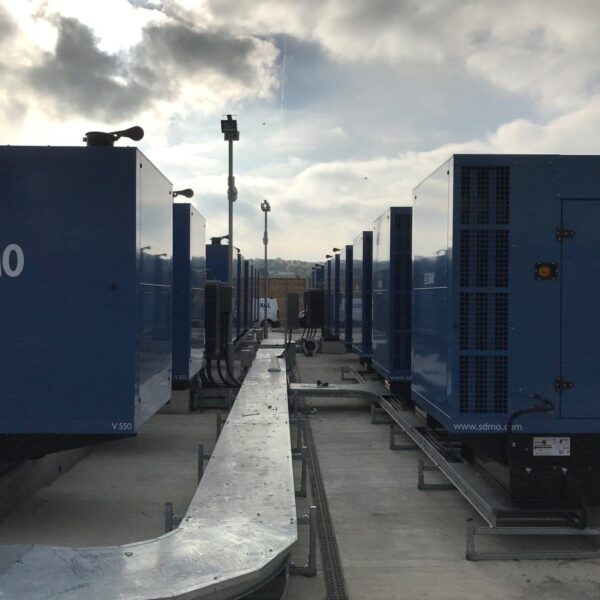As the world continues to grapple with the impact of the COVID-19 pandemic, it is no surprise that there is increased pressure for data centres to be immune to the risks of downtime, with testing playing a vital role in any future resilience strategy. This blog explores what the pressures are for data centres, the importance of testing and how modern UPS designs can help.
The events of recent months have demonstrated that the ability to operate secure systems is critical to the global economy. With lockdowns being implemented as a key tactic in the fight against COVID-19, people are increasingly reliant on digital communications, whether because they are working from home, keeping in touch with family, spending time on social networking sites or turning to online shopping in a bid to fill their cupboards.
Data centres are playing a vital role in this crisis – supporting mission-critical business and social activities but also allowing governments and health professionals to store and share data which could play an important role in fighting the spread.
While the growing focus on power resilience is increasingly evident, simply having the equipment in place is not enough. The pandemic is forcing data centre operators to invest in costly measures to make their systems more robust.
In a survey by Uptime Institute, 4% of data centre respondents said they had a COVID-19-related outage and 10% had experienced a service slowdown that was COVID-19 related.
Establishing the causes of these slowdowns or power outages will probably not be easy. Research does show that staff shortage and tiredness can lead to more incidents and outages, and sustained staff shortages (due to illness, separation of shifts and self-isolation) are widespread across the sector.
Slowdowns, meanwhile, are most likely to be the result of sudden changes in demand and overload, or an external third-party network problem. Two examples are the online grocer that mistook high demand for a denial of service attack; and Sharp Electronics, which offered consumer PPE using the same systems as its online appliance management systems in Japan. Both crashed. Zoom, the suddenly popular conferencing service, has also experienced some maintenance-related issues.
While the risks of downtime vary from site to site, one thing remains constant – interruptions in power supply have the potential to cause operational chaos. Properly planned and implemented, preventative maintenance strategies can minimise the likelihood of unscheduled breakdowns and power outages, effectively negating the potential risk of costly commercial, reputational and legal issues.
Investment for the future
During a crisis, when businesses are required to operate on skeleton staff, having the confidence that a back-up power supply will work if required is even more important. Whilst some maintenance and inspection will undoubtedly be on hold for the time being, we expect to see an upsurge in testing when we emerge from this crisis and anticipate that regular preventive maintenance will become increasingly prevalent in the future. If cloud computing firms have not already mandated, data centre providers must henceforward have two redundant systems in the wings for each of the foundational data centre components, such as cooling and power.
Two-thirds of data centre operators plan to make their facilities more resilient as a response to the pandemic, according to an Uptime Institute survey. This means building more redundant and emergency power systems.
Another key consideration for data centre managers will be to look at modular UPS topology which can contribute to resilient, redundant power systems. Modular UPS systems designs offer improvements in efficiency, as well as great benefits in availability, uptime, easier UPS maintenance and, are scalable.
Identifying the right uninterruptible power supply may require guidance. Maintaining UPS systems at a high level of availability, coupled with responding fast when a problem does arise, calls for readily available, highly skilled technicians. This level of backup power supply can best be achieved by leveraging the resources of the original UPS supplier, complementing these with support from the facility’s on-site operational staff, and managing the overall strategy with a well-tailored UPS maintenance contract.
To find out more about our range of modular UPS systems and our maintenance programmes, please get in touch by calling us on +353 (0) 1 4606859.





